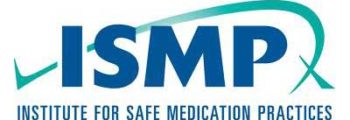Invokana Lawsuit
Update: FDA Requires Boxed Warning on Amputation Risk with Invokana
May 16, 2017 – Based on the final results of 2 long-term clinical trials, FDA has concluded that type 2 diabetes patients who take Invokana or Invokamet are twice as likely to have their foot or toe amputated. As a result of these findings, the agency is requiring that both medications carry a boxed warning regarding the amputation risk.
What’s the Problem?
Our lawyers are reviewing potential lawsuits for people who were injured by Invokana (generic: canagliflozin), a type 2 diabetes drug that has recently been linked to diabetic ketoacidosis (DKA), kidney failure and an increased risk for amputations of the leg, foot and toes.
What is Invokana?
Invokana is an oral medication that helps control blood sugar levels in patients with type 2 diabetes. The drug works by inhibiting sodium glucose co-transporter 2, a carrier that aids in the reabsorption of glucose into the bloodstream through the kidneys. Invokana is made by Janssen Pharmaceuticals (a Johnson & Johnson company), and was approved by the FDA on March 29, 2013.
Invokana Side Effects
Our lawyers are accepting potential lawsuits on behalf of Invokana users who developed the following serious side effects:
- Diabetic Ketoacidosis (DKA, Diabetic Acidosis, Metabolic Ketoacidosis, Metabolic Acidosis, Ketoacidosis)
- Kidney failure
- Urosepsis
- Pyelonephritis
- Amputations of the leg, foot or toes
Other serious side effects associated with Invokana include:
- Heart Attack (Myocardial Infarction or MI)
- Kidney Stones
- Bone Fractures / Bone Abnormalities
- Stroke
- Testicular Cancer
- Urinary Tract Infections (UTIs)
- Severe Dehydration / Fluid Imbalance
- Abnormal Weight Loss
- Hypersensitivity (Allergic Response)
- Blood Infections (Urosepsis)
- Fungal Infections
- Yeast Infections (both men and women)
- And more
Diabetic Ketoacidosis
On May 15, 2015, FDA issued a Drug Safety Communication regarding a potential risk of diabetic ketoacidosis associated with SGLT2 inhibitors like Invokana. The condition occurs when cells in the body are unable to get the glucose they need for energy because there is not enough insulin. If left untreated, ketoacidosis can lead to diabetic coma (passing out for long periods of time) and even death.
The FDA Adverse Event Reporting System (FAERS) identified at least 20 cases reported as diabetic ketoacidosis (DKA), ketoacidosis, or ketosis in SGLT2 inhibitor users from March 2013 to June 6, 2014. Ketoacidosis does not typically occur in patients with type 2 diabetes, and the case presentations were “atypical in that glucose levels were only mildly elevated at less than 200 mg/dL in some reports, while patients with type 1 diabetes who have DKA typically have glucose levels greater than 250 mg/dL,” according to the FDA.
ISMP Report Identifies 168 Cases of Metabolic Acidosis Linked to SGLT2 Inhibitors
The Institute for Safe Medication Practices (ISMP) on January 13, 2016, issued its QuarterWatch Report which detailed adverse events linked to SGLT2 inhibitor diabetes medications. The report determined that:
- Both prescriptions for and injuries associated with SGLT2 inhibitors are increasing rapidly;
- By the second half of 2015, there were approximately 1.1 million prescriptions filled for Invokana, 411,000 for Farxiga (dapagliflozin) and 136,000 for Jardiance (empagliflozin).
- During 2015, at least 168 adverse events involving metabolic acidosis were associated with Invokana, 80 with Farxiga and 12 with Jardiance.
“Despite the lack of long-term data on safety and benefits, these new drugs have moved rapidly into widespread clinical use, according to data from IMS Health,” ISMP said. “We observed increasing numbers of reports of metabolic acidosis – a potentially life-threatening disorder that has been the focus of two FDA Drug Safety Communications.”
EMA Warns of Ketoacidosis Risk with Invokana
SGLT2 inhibitors have also been associated with diabetic ketoacidosis overseas; in February 2016, the European Medicines Agency (EMA) issued a warning which stated that the drugs had been linked to to over 100 reports of the condition. “Although diabetic ketoacidosis is usually accompanied by high blood sugar levels, in a number of these reports, blood sugar levels were only moderately increased,” EMA said. “These uncharacteristic blood levels could delay diagnosis and treatment.” The agency is reviewing data on the ketoacidosis risk, and will consider whether any changes are needed in the way SGLT2 inhibitors are used or prescribed in Europe.
Ketoacidosis Symptoms
Signs and symptoms of diabetic ketoacidosis include:
- Difficulty breathing
- Nausea
- Vomiting
- Abdominal pain
- Confusion
- Unusual fatigue
- Sleepiness
Kidney Failure
The ISMP QuarterWatch report noted above discussed a potential link between Invokana and kidney damage. The group identified 457 incidents of implied renal toxicity associated with the drug since its initial approval, which included reports of:
- Kidney failure
- Impaired renal function
- Kidney stones
- Dehydration
- Urinary tract infection (UTI)
- Hypersensitivity
Of these, 54 cases involved reports of kidney failure or renal impairment. “The unanswered question about canagliflozin—shared in part by other diabetes medications—is whether it has clinical benefits, and whether those benefits outweigh its risks,” ISMP said.
Amputations
On May 18, 2016, FDA warned of an increased risk of foot, leg and toe amputations associated with canagliflozin (the active ingredient in Invokana). The warning was issued in response to the interim analysis of the Canagliflozin Cardiovascular Assessment Study (CANVAS) trial, which found the amputation risk to be equivalent to:
- 7 out of every 1,000 patients treated daily with 100 mg canagliflozin;
- 5 out of every 1,000 patients treated daily with 300 mg canagliflozin, and
- 3 out of every 1,000 patients treated with placebo.
Bone Fractures
In September 2015, FDA required Janssen to add new information to Invokana warning labels regarding a possible increased risk of bone fractures after several clinical trials confirmed that fractures were more likely in patients treated with canagliflozin. Findings indicated that fractures can occur as early as 12 weeks after initiation of treatment, and may be associated with minor trauma, such as a fall from standing height.
Has There Been a Recall?
Despite being linked to a variety of serious, potentially life-threatening side effects, Invokana has not been recalled in the U.S. and continues to be prescribed to diabetes patients across the country. However, the drug is relatively new, and the investigation into health problems attributed to Invokana is still in its early stages. These investigations often take years for all the facts to come out which may eventually lead to a recall.
Are Cases Being Settled?
Some lawsuits settle early in the claims process, but this has not happened so far in the Invokana litigation. The suits will likely either be handled individually or consolidated into a multidistrict litigation (MDL) for pretrial handling. In either case, after a certain period of time a number of “bellwether trials” will take place.
Bellwether trials are intended to give the parties an idea of the types of evidence and arguments that will be made in the litigation, as well as to see how juries are likely to respond. After these trials have concluded, the parties are in a better position to determine whether a case can be settled or not. It is expected that Invokana settlements will follow this pattern.
Is There a Class Action?
No class action lawsuit has yet been filed in the Invokana litigation. However, our lawyers are investigating potential individual lawsuits for people who were diagnosed with diabetic ketoacidosis (DKA), kidney damage, or required an amputation after taking Invokana. If we determine that you have a legitimate claim, you may be eligible to receive compensation for medical expenses, lost wages, pain and suffering, and other damages.
Lawsuit Allegations
Invokana lawsuits allege that Johnson & Johnson and its Janssen subsidiary failed to adequately warn about the increased risk of diabetic ketoacidosis (DKA), kidney failure and amputations associated with the drug. The complaints state that had the manufacturer properly warned about these serious side effects, doctors would have opted to prescribe a diabetes drug with fewer potential side effects. Additionally, patients would have had their health monitored on a more frequent basis for potential signs of these conditions had they been warned beforehand of the dangers.
Invokana Lawsuits Consolidated in New Jersey
December 19, 2016 – The U.S. Judicial Panel on Multidistrict Litigation (JPML) has ordered that all federal lawsuits alleging kidney failure and diabetic ketoacidosis from Invokana and Invokamet will be transferred to the District of New Jersey for pretrial handling before Judge Brian R. Martinotti. J&J and Janssen currently face about 55 such complaints in courts across the U.S. However, it is expected that this number will grow into the hundreds or even thousands by the time the litigation process is complete.
FDA Strengthens Kidney Injury Warning on Invokana
June 14, 2016 – The U.S. Food & Drug Administration (FDA) today upgraded kidney damage warnings on SGLT2 inhibitor diabetes drugs (Invokana, Invokamet, Farxiga, Xigduo XR). From March 2013 to October 2015, the agency received at least 101 confirmable reports of acute kidney injury — some requiring emergency hospitalization and dialysis treatment — associated with the medications.
Invokana Timeline
2013 – Invokana approved by FDA

March 29, 2013 – Invokana (canagliflozin) approved by the U.S. Food & Drug Administration (FDA) as an adjunct to diet and exercise to help improve glycemic control in adults with type 2 diabetes.
2015 – FDA issues Drug Safety Communication
March 15, 2015 – FDA issues Drug Safety Communication regarding an increased risk of diabetic ketoacidosis (DKA, Diabetic Acidosis, Metabolic Acidosis, Ketoacidosis) associated with SGLT2 inhibitor diabetes drugs like Invokana.
2015 – Janssen required to add to warning labels
September 10, 2015 – FDA requires Janssen to add new information to Invokana warning labels regarding an increased risk of bone fractures after several clinical trials confirmed that fractures were more likely in patients treated with canagliflozin (the active ingredient in Invokana).
2015 – SGLT2 inhibitor labels revised

December 4, 2015 – SGLT2 inhibitor labels revised to include warning about too much acid in the blood and serious urinary tract infections (UTIs).
2016 – ISMP releases QuarterWatch report

January 13, 2016 – The Institute for Safe Medication Practices (ISMP) releases its QuarterWatch report detailing at least 168 cases of metabolic acidosis linked to Invokana in 2015 alone.
2016 – European Medicines Agency (EMA) warning
February 11, 2016 – The European Medicines Agency (EMA) warns that over 100 cases of diabetic ketoacidosis had been reported in patients treated with SGLT2 inhibitors in Europe.
2016 – Interim Canagliflozin Cardiovascular Assessment Study released
March 18, 2016 – Interim results from the ongoing Canagliflozin Cardiovascular Assessment Study (CANVAS) trial suggest an increased risk of amputations associated with canagliflozin.
2016 – FDA warning
May 18, 2016 – FDA warns of an increased risk of leg, foot and toe amputations linked to canagliflozin.
2016 – FDA strengthens warning label
FDA strengthens kidney injury warning on labeling of canagliflozin (Invokana, Invokamet) and dapagliflozin (Farxiga and Xigduo XR).

